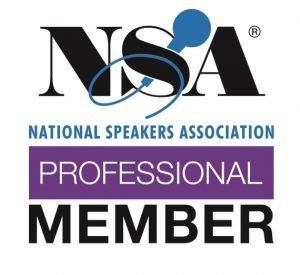Introvert or extrovert. Most psychological tests apply this label and in popular definitions, extroverts are seen as outgoing, fun-loving, and gregarious. Introverts are seen as inward-focused, quiet, and maybe even standoffish.
The Daedalus Group uses the My HardWired™ Leadership Styles Assessment and like most such instruments, it identifies introversion and extroversion. While this is a legitimate identification, it sometimes leaves people, especially those identified as introverted, with a feeling that they have a lesser trait.
In fact, neither trait is better than the other. Some people are more introspective or contemplative. They want to take time to examine facts. Introverted people may find long periods with groups to be tiring and they want time to recharge. That is in stark contrast to extroverted people who thrive on group contact and are more given to taking action than long contemplative periods.
In workshops participants sometimes rebel about the label that the assessment provides, especially when that label is “introvert.” Don’t let those labels define how you interact with others. Although these labels may identify your basic approach to interacting with others, there is no good or bad, no better or worse. And these labels certainly do not define what you can or cannot do. There is no reason an introverted person cannot perform well in a group situation or be outgoing and enthusiastic. There is also no reason an extroverted person cannot be introspective and contemplative. The secret is to understand that, in either case, doing so will take more energy.
If you are an outgoing introvert or an introspective extrovert you will probably find that, by the end of the day you are tired and need to recharge. That’s because you have had to expend additional energy to perform outside your natural style.
Actually it’s good that both kinds of people exist. Teams that have a mix of types have a better balance and are more effective than teams with all one type or the other. But, that’s true only if the team’s members, and especially the leader, recognize the value of each other’s contribution.
Special thanks to Dr. Marlene Bizub who, in an unrelated and informal conversation provided just the right comment to help me put these thoughts together.
 Bob Mason is dedicated to leadership development. He works with companies to solve problems by helping supervisors and managers become more effective leaders leading more productive teams. He is a professional speaker and author of Don’t Worry, You Can Do This: What New Supervisors and Managers Need to Know About Leadership; The Art of Not Motivating: How Leaders Can Succeed by Understanding the True Nature of Motivation; Balancing the Generations: A Leader’s Guide to the Complex, Multi-Generational, 21st Century Workplace; and Planning to Excel: Strategic Planning That Works.
Bob Mason is dedicated to leadership development. He works with companies to solve problems by helping supervisors and managers become more effective leaders leading more productive teams. He is a professional speaker and author of Don’t Worry, You Can Do This: What New Supervisors and Managers Need to Know About Leadership; The Art of Not Motivating: How Leaders Can Succeed by Understanding the True Nature of Motivation; Balancing the Generations: A Leader’s Guide to the Complex, Multi-Generational, 21st Century Workplace; and Planning to Excel: Strategic Planning That Works.
A 30-year career in the U.S. Air Force exposed him to great leaders and leadership opportunities such as command of four squadrons, including the Air Force’s largest munitions squadron. He has studied leadership extensively, but more importantly has been there, working with real people, making hard decisions, and experiencing the results.
Contact Bob at Bob@BobMasonSpeaker.com or 505-453-5266




